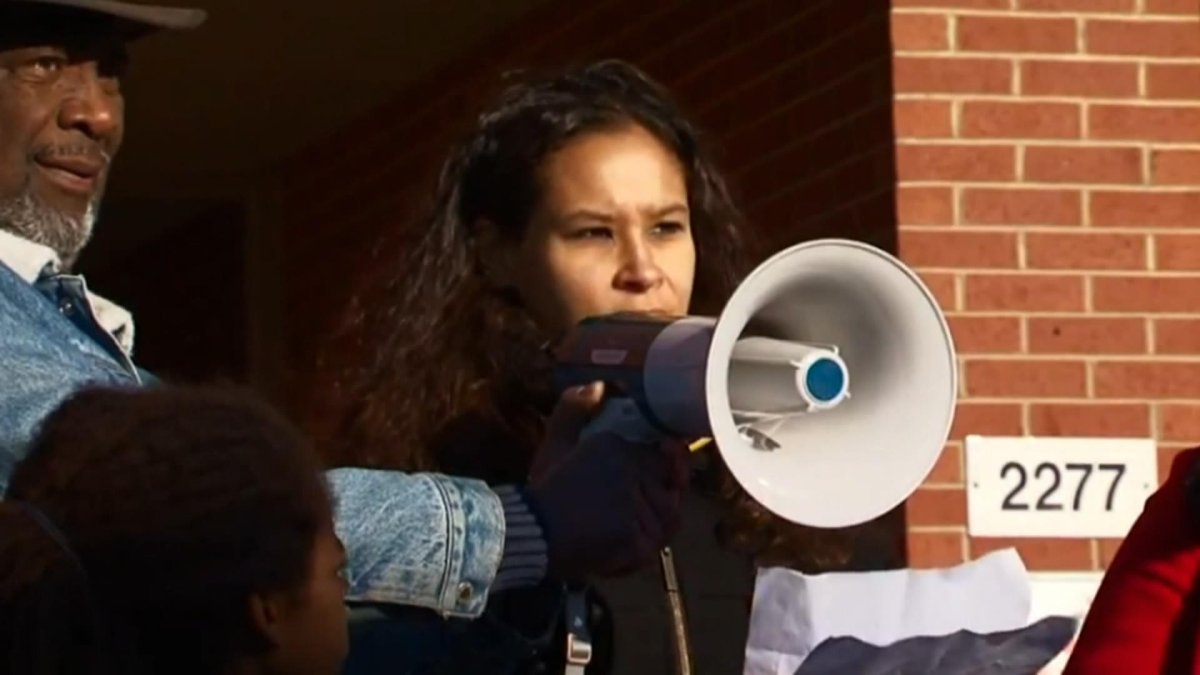The Halifax Board of Police Commissioners met on Monday to hear Halifax-based poet, writer and activist El Jones propose a committee on defunding police.

In September, Jones was appointed to present to the board a proposal on creating a committee that would “recommend a definition of defunding the police and investments to support communities and public safety.”
Discussions on defunding police go hand in hand with the Black Lives Matter movement. The idea gained momentum following the death of George Floyd at the hands of the Minneapolis police on May 25.
On July 9, the commissioners’ board proposed a definition of defunding police. That definition was not adopted and the board then requested a proposal for a committee.
On Monday, Jones offered a definition by Robyn Maynard, the author of Policing Black Lives: State violence in Canada from slavery to the present, on defunding police: “Removing funds, services, scope and equipment from police departments and investing in real and non-carceral alternatives to provide community safety.”
Jones provided another definition given to her by Dr. OmiSoore Dryden, a chair in Black Canadian studies and an associate professor in the department of community health and epidemiology at Dalhousie University: “Defund the police means acknowledging that police do not in fact keep us safe. And for this reason, the money put towards the systems of policing needs to cease. Money must no longer be provided to fund police or policing systems.”

Jones said defining defunding isn’t the pressing matter.
“The real question is what does that look like?” Jones said. “More than a definition, what the issue is here is a complete conversation.”
Jones said what needs to be discussed are questions around punishment, safety depending on policing, misconceptions of crime rates, media coverage of violent crime and racial ideologies of criminalization.
Jones said that historically, Black and Indigenous people have been criminalized and that is reflected in incarceration rates – and street checks.
The Halifax police Wortley report determined that Black Nova Scotians were five times more likely to be stopped and street-checked by police.
- ‘Shock and disbelief’ after Manitoba school trustee’s Indigenous comments
- Canadian man dies during Texas Ironman event. His widow wants answers as to why
- Several baby products have been recalled by Health Canada. Here’s the list
- ‘Sciatica was gone’: hospital performs robot-assisted spinal surgery in Canadian first
As an example of defunding, Jones recalled the proposal of Dr. Leah Genge that the city institute “sobering centres” staffed by health workers rather than arresting and detaining intoxicated people.
This was proposed to the board on Jan. 20 by Harry Critchley in response to the death of Corey Rogers who died in the custody of Halifax Regional Police.
“This is divestment from reliance on police to deal with social and health issues for which they are not equipped, and instead shifting resources to community services,“ Jones said.
Yellowknife, for example, recently opened a new sobering centre and is developing Indigenous-led healing programs.
Jones said people are not always aware of what resources exist as an alternative to policing.
“Early in the COVID-19 pandemic, Nova Scotia was able to release 41 per cent of provincially incarcerated people and provide supportive housing in community at around half the cost of incarceration,” Jones presented.
“In our communities, this work is already taking place.”
Jones said a definition is only meaningful when accompanied by a process that explains and explores how defunding can be put into practice.
Jones sees the role of the committee to be collaborating on research, reporting and facilitating community hearings.
The proposed committee would primarily include Dr. OmiSoore Dryden, Dr. Leah Genge, a representative from The Decade for People of African Descent Coalition (DPAD), and a representative from the N.S. Policing Policy Working Group.

Jones said the committee should also include members chosen by the community.
She listed the following communities to be involved: the Mi’kmaw, LGBTQ2, disability advocacy, housing and homelessness advocacy, youth, gender-based and intimate partner violence advocacy and newcomer and refugee communities.
Jones said public hearings should be set up to learn about what resources exist in the communities, to build a public understanding of what defunding police looks like and involve community collaboration.
She said public hearings would also contribute to the board’s 2020 workplan deliverable of increasing public participation meetings.
She proposed that the committee reach out to community groups to request short presentations and put out a call for public submissions.
A report would be produced to provide a definition of defunding the police.
It would also provide an overview of major research, history of discourse and current debate on defunding and abolition, as well as review practices in other municipalities.
The report would address policies and proposals that could facilitate defunding, summarize from community hearings and articulate what defunding would look like in practice in Halifax.
Jones proposed that the hearings be held in January and a report be completed by spring. She also proposed that there be a space for public feedback before the board would approve the report.
North end Coun. Lindell Smith said funding for the committee needs to be discussed as well.
“Their time is very valuable, and even other community members who might not have a PhD… their time is just as valuable.”
Smith also said he has received emails “from angry individuals who think that this committee is not representative of all of HRM because it would be made to only include the left wing. These are exact quotes.”
Jones said the committee will provide research and reporting.
“I certainly do not envision the committee as a defining voice,” she said. “It’s the voice that facilitates a community-led process.”

She later said this will not be an authoritarian process.
“I think a lot of people are kind of imagining, ‘OK, so El Jones just tells us what to do and then what, we have to do it?’ That’s obviously not the case, I have no actual power.”
Jones said she wants to de-emphasize the notion of “El Jones” in this discussion.
“I am not a community, I am not a society, I am not Halifax.”
Chair of the board Natalie Borden said she made the call to include Jones because of her standing in the community.
“If we weren’t using somebody who had the credibility, the access, the respect of community and those connections in community, it was really going to be a top-down thing,” Borden said.
“We need to engage community in a meaningful way, perhaps better than before.”
Jones said she understands that this is a long-term process and is not married to the proposed timeline if it takes longer.
The board passed a motion to adopt Jones’ proposal in principal and to initiate a working group to discuss the details of the proposal.
The motion passed unanimously.




Comments